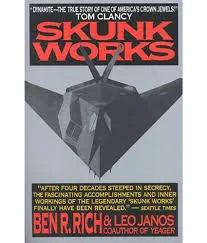Proposed Definition for "Expertise Management Systems"
In a recent slide presentation I proposed the following as a definition of an “expertise management system:”
What is an “Expertise Management System”?
- An Expertise Management System IS a specialized Knowledge Management system that focuses on:
- finding out and continually recording what people (“experts”) in an organization know (“expertise”)
- making this expertise available to users so they can answer questions or solve problems that exceed personal or workgroup capabilities
- An Expertise Management System IS NOT:
- a document retrieval or file management system.
- an “expert system” that provides diagnostic or problem solving functionality.
Note the definition says an Expertise Management System is a type of Knowledge Management system, not a Knowledge Management system per se. The reason for the distinction is to get away from the idea that the system is designed to manage recorded knowledge. Managing access to recorded knowledge is the focus of some knowledge management systems, such as those that emphasise document management and retrieval.
Instead, the Expertise Management Systems help people identify other people who can be contacted to “… answer a question or solve a problem.” The system makes what “experts” know accessible to others so the “expert” can be contacted directly to provide information or support — as well as access to information that is not yet recorded.
This latter point is an important one. It is one of the reasons why social networking, collaboration, and relationship management technologies, if harnessed effectively, can help connect people within organizations so that decision-making and problem-solving processes can be accelerated.
Technologies are useless if they are not harnessed correctly. They must be managed in the context of processes that support an organization’s objectives. The following are the “core processes” of Expertise Management Systems as identified in my presentation:
- Identify the experts.
- Describe the expertise.
- Provide an expertise matching mechanism.
- Enable users to communicate.
- Provide a feedback mechanism.
- Manage the process.
A variety of technologies are relevant to these processes. Here are some examples:
If you would like to discuss any of the above information, please check out my recent slide presentation and contact me at ddmcd@outlook.com.
Copyright (c) 2006 by Dennis D. McDonald.



